- Key Takeaways
- Brand Loyalty Basics
- Loyalty vs Customer Loyalty
- Building Brand Loyalty
- Enhancing Brand Loyalty
- Significance for Product Businesses
- Identifying Strategies
- Brand Loyalty Indicators
- Future of Brand Loyalty
- Closing Thoughts
- Frequently Asked Questions
Brand loyalty, a concept deeply rooted in consumer behavior and involvement consumers, plays a pivotal role in the success of businesses worldwide. By fostering strong connections with customers, brands can cultivate a loyal following that transcends mere transactions. This enduring allegiance, involving consumers, leads to habitual buying behavior, repeat purchases, positive word-of-mouth marketing, and increased customer lifetime value. In today's competitive market landscape, marketers building and maintaining brand loyalty through positive customer experience is more critical than ever.
As businesses strive to differentiate themselves and stand out in crowded markets, nurturing brand loyalty emerges as a strategic imperative for marketers. Understanding the historical context of brand loyalty provides valuable insights into its evolution and significance in modern marketing practices. Join us as marketers delve deeper into the intricacies of brand loyalty, involving attitudes, and explore effective strategies for cultivating lasting relationships with customers.
Key Takeaways
- Building Brand Loyalty: Focus on creating positive customer experiences through consistent branding, excellent customer service, and personalized interactions.
- Identifying Strategies: Implement loyalty programs, engage with customers through social media, and gather feedback to understand customer needs and preferences.
- Enhancing Brand Loyalty: Offer exclusive rewards, discounts, and incentives to loyal customers to foster long-term relationships and encourage repeat purchases.
- Significance for Product Businesses: Brand loyalty can lead to increased customer retention, higher customer lifetime value, and a competitive edge in the market.
- Brand Loyalty Indicators: Monitor customer engagement, repeat purchases, referrals, and customer feedback to gauge the effectiveness of your brand loyalty initiatives.
- Future of Brand Loyalty: Embrace technology trends such as AI, personalization, and omnichannel marketing to adapt to changing consumer behaviors and maintain brand loyalty in a digital age.
Brand Loyalty Basics
Understanding Brand Loyalty
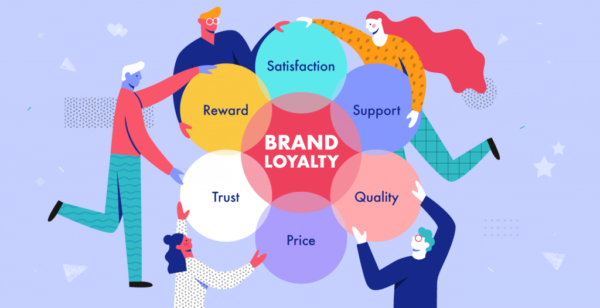
Brand loyalty involves a long-term commitment to a particular brand or company. It is built on the perception of quality, reliability, and consistency in products or services. The psychological aspect of brand loyalty delves into the emotional connection customers have with a brand.
Initiating Development
To kickstart brand loyalty, companies must prioritize delivering best-in-class quality products or services. Exceptional customer service plays a crucial role in fostering loyalty by ensuring positive interactions with customers. Leveraging brand ambassadors can also help in creating trust and credibility among consumers.
Importance for Businesses
Brand loyalty has the potential to drive significant revenue growth for businesses. By retaining loyal customers, companies can increase profitability through repeat purchases and positive word-of-mouth referrals. Moreover, maintaining brand loyalty is often more cost-effective than acquiring new customers.
Types of Loyalty
Distinguishing between brand loyalty and customer loyalty is essential. Brand-loyal customers are those who repeatedly choose a specific brand over others due to their strong emotional connection and satisfaction with the brand experience. Loyalty programs play a pivotal role in nurturing and strengthening brand loyalty by offering rewards and incentives to loyal customers.
Loyalty vs Customer Loyalty
Defining Brand Loyalty
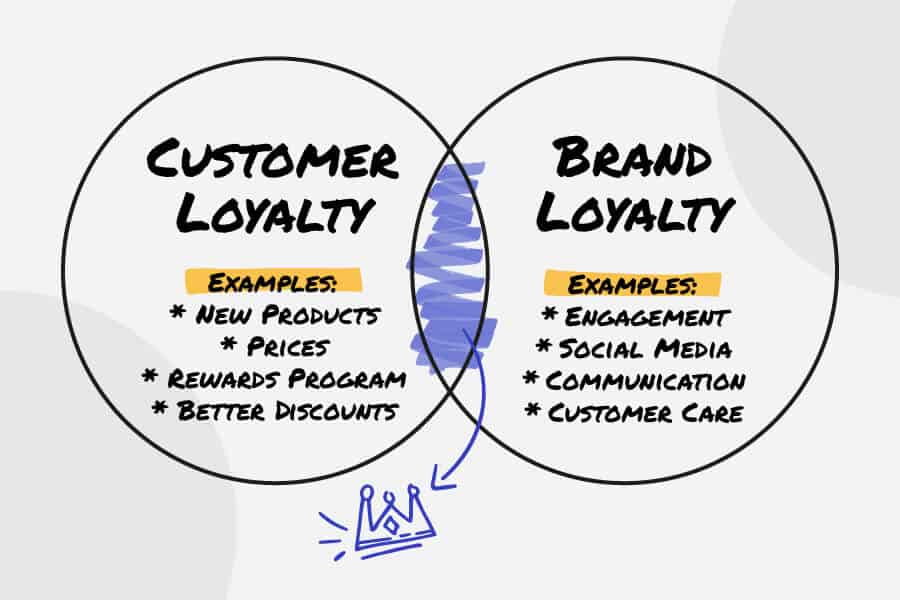
Brand loyalty refers to the consistent repeat purchases of a particular brand's products or services by consumers. This loyalty is closely linked to the perceived quality associated with the brand, where customers trust and prefer it over others. Customer retention plays a crucial role in determining brand loyalty, showcasing how well a brand can maintain its customer base.
Defining Customer Loyalty
Customer loyalty involves the repeated business transactions between a company and its existing clients. Unlike brand loyalty, customer loyalty is not solely influenced by pricing strategies but also by factors like customer service, product satisfaction, and overall experience. Conducting customer satisfaction surveys is vital for measuring and understanding customer loyalty levels accurately.
Key Differences
- Brand loyalty focuses on customers repeatedly choosing a specific brand due to its perceived quality.
- Customer loyalty extends beyond brand preference, encompassing factors like service quality and overall customer experience.
- While brand loyalty emphasizes the reputation and consistency of a brand's offerings, customer loyalty places importance on building strong relationships with individual customers.
Building Brand Loyalty
Effective Strategies
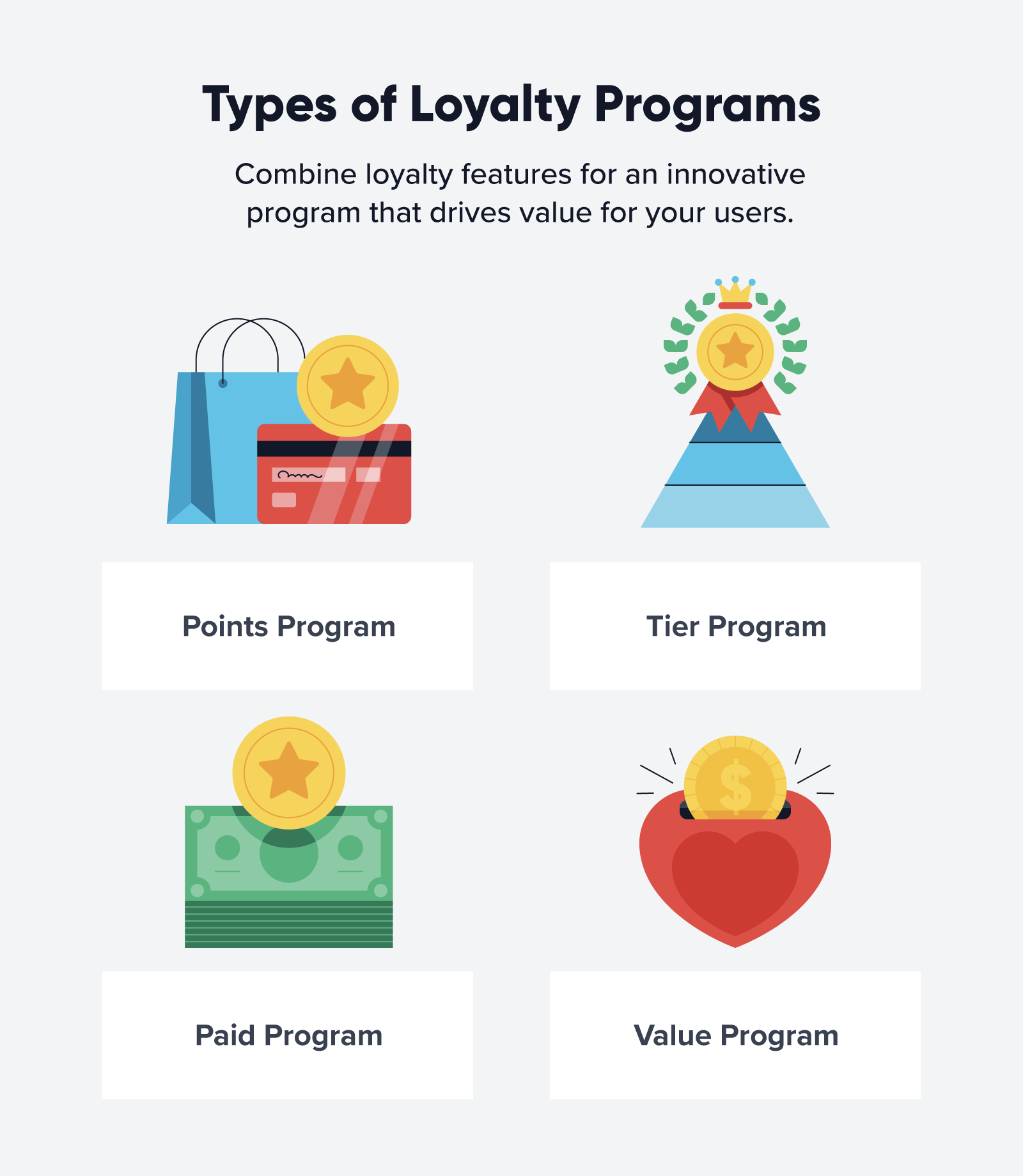
Emotional Connections
Building emotional connections is crucial for fostering brand loyalty. When customers feel emotionally attached to a brand, they are more likely to make repeat purchases. This emotional bond creates a sense of trust and reliability.
Consistent Quality plays a significant role in establishing and maintaining brand loyalty. By consistently delivering high-quality products or services, brands can build trust with their customers. This trust leads to increased customer satisfaction and loyalty over time.
Reward Programs are effective tools in enhancing brand loyalty. These programs incentivize customers to continue choosing a specific brand by offering rewards for their loyalty. Reward programs not only encourage repeat purchases but also increase customer engagement.
Identifying Indicators
Consistent Quality
Maintaining consistent quality across all products and services is essential for building brand loyalty. Customers expect reliability from brands they are loyal to, and any drop in quality can lead to a loss of trust and loyalty.
Reward Programs are another key indicator of brand loyalty. Brands that offer reward programs tend to have higher customer retention rates as these programs create incentives for customers to remain loyal. Reward programs contribute significantly to increasing the overall customer lifetime value.
Identifying indicators of brand loyalty involves monitoring various metrics such as customer retention rates and satisfaction levels. Customer retention rates provide insights into how loyal customers are towards the brand, while satisfaction surveys help gauge the level of emotional connection customers have with the brand.
Enhancing Brand Loyalty
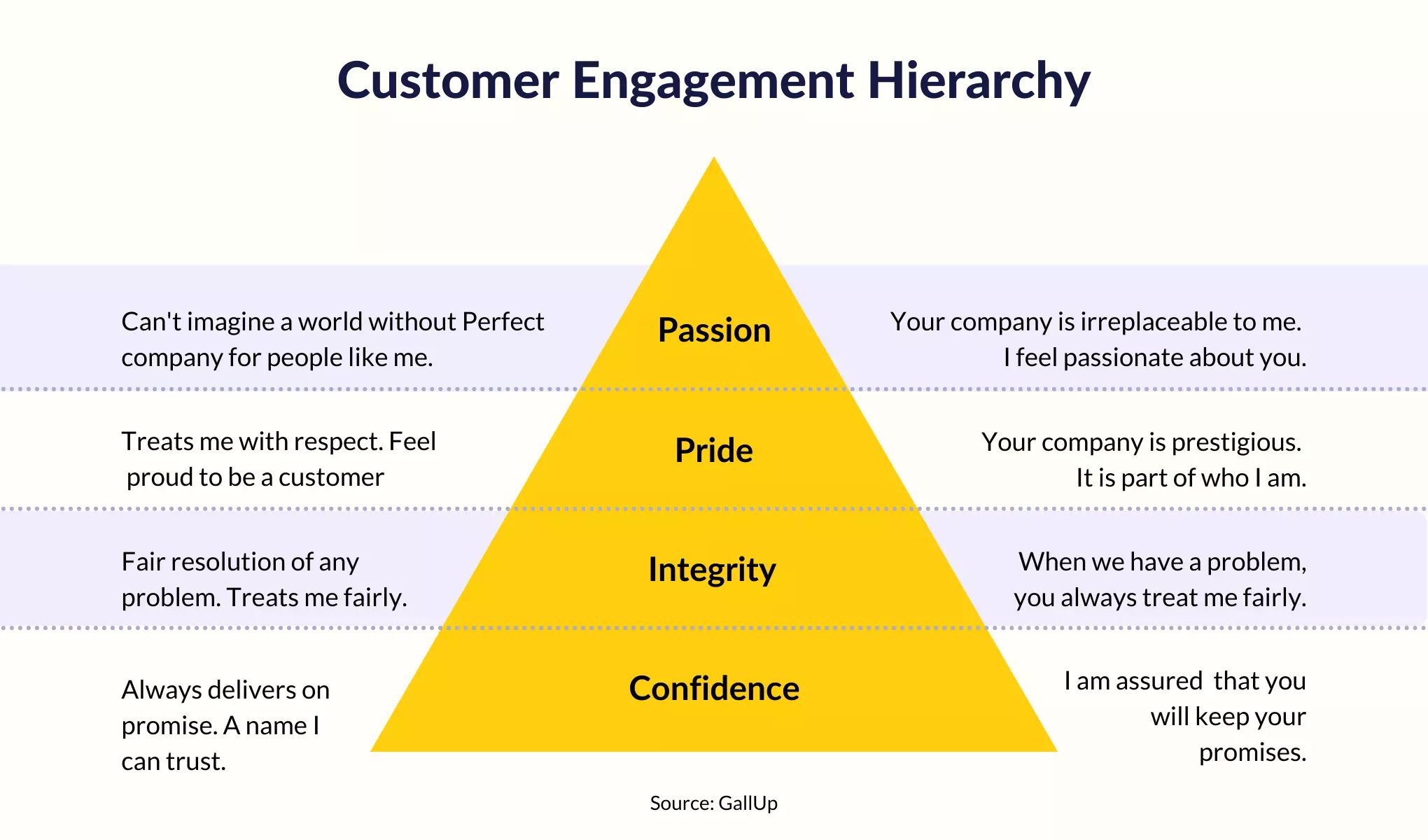
Personalization Techniques
Personalization plays a crucial role in building brand loyalty by creating tailored experiences for customers. By using data analytics, companies can customize products and services to meet individual preferences. This level of personalization fosters a deeper connection between the customer and the brand.
The impact of personalized experiences on customers is significant. When customers feel understood and valued, they are more likely to develop an emotional attachment to the brand. This emotional bond leads to increased trust and loyalty, driving repeat purchases and positive word-of-mouth recommendations.
Personalization enhances customer engagement by creating interactive and immersive experiences. By addressing the specific needs and desires of customers, brands can increase customer satisfaction and loyalty. Through personalized communication strategies, companies can establish long-lasting relationships with their audience.
Community Building
Building an online community is essential for fostering brand loyalty as it creates a sense of belonging among customers. Online communities provide a platform for customers to interact with each other, share experiences, and connect with the brand on a deeper level. This sense of community strengthens the emotional ties between customers and the brand.
Online communities drive brand loyalty by offering a space for customers to engage with like-minded individuals who share similar interests or values. Through active participation in discussions, forums, and events within the community, customers feel connected to the brand's mission and vision. This connection translates into increased loyalty and advocacy.
The role of community building in customer retention cannot be overstated. By nurturing relationships within the online community, brands can create loyal advocates who not only continue to support the brand but also actively promote it to others. Customer retention is significantly higher among those who are part of a thriving online community centered around a brand.
Leveraging Feedback

Customer feedback is vital in maintaining brand loyalty as it provides valuable insights into customer preferences, pain points, and expectations. By listening to customer feedback, brands can identify areas for improvement and make necessary adjustments to enhance the overall customer experience.
Feedback improves brand offerings by guiding product development, service enhancements, and marketing strategies based on real-time input from customers. Brands that actively seek and incorporate feedback demonstrate their commitment to meeting customer needs effectively, thereby strengthening brand loyalty in the long run.
The impact of feedback on customer satisfaction is profound. When customers see that their opinions are valued and acted upon by the brand, they feel appreciated and respected. This positive interaction builds trust and loyalty over time, leading to increased customer satisfaction levels.
Significance for Product Businesses
Impact on Sales

Brand loyalty significantly impacts sales by fostering customer trust and encouraging repeat purchases. Customers who are loyal to a brand are more likely to make frequent purchases, leading to increased revenue for the business. This loyalty creates a steady stream of income, contributing to the company's competitive advantage.
When customers develop a strong connection with a brand, they become advocates who promote the products or services to others. This word-of-mouth marketing is a powerful tool that can attract new customers and further boost sales. In essence, brand loyalty acts as a catalyst for sustained growth and profitability in product businesses.
- Increased revenue generation
- Word-of-mouth marketing
- Sustained growth
Customer Retention
Customer retention plays a vital role in maintaining brand loyalty as it focuses on keeping existing customers satisfied and engaged. By prioritizing customer retention strategies, businesses can build long-term relationships with their clientele, leading to repeated purchases and higher customer lifetime value.
A loyal customer not only continues to purchase from the brand but also tends to spend more over time. This increased spending contributes directly to the company's bottom line, enhancing profitability. Therefore, investing in customer retention efforts is crucial for businesses looking to establish a strong foundation of loyal customers.
- Higher customer lifetime value
- Enhanced profitability
- Long-term relationships
Identifying Strategies
Emotional Engagement
Emotional engagement plays a crucial role in brand loyalty as it connects customers on a deeper level. By evoking emotions like trust, happiness, or nostalgia, brands can create lasting bonds with their customers. These emotional connections often lead to repeat purchases and positive word-of-mouth referrals.
Customers who feel emotionally connected to a brand are more likely to remain loyal even when faced with competitive offers. Emotional connections foster a sense of belonging and attachment, making customers feel valued and understood. This, in turn, strengthens brand loyalty and increases customer retention rates over time.
The impact of emotional engagement on brand perception cannot be overstated. Brands that successfully engage customers on an emotional level tend to be viewed more favorably by consumers. Positive emotions associated with a brand can lead to increased brand advocacy, higher customer lifetime value, and ultimately, sustained brand loyalty.
Experiential Marketing
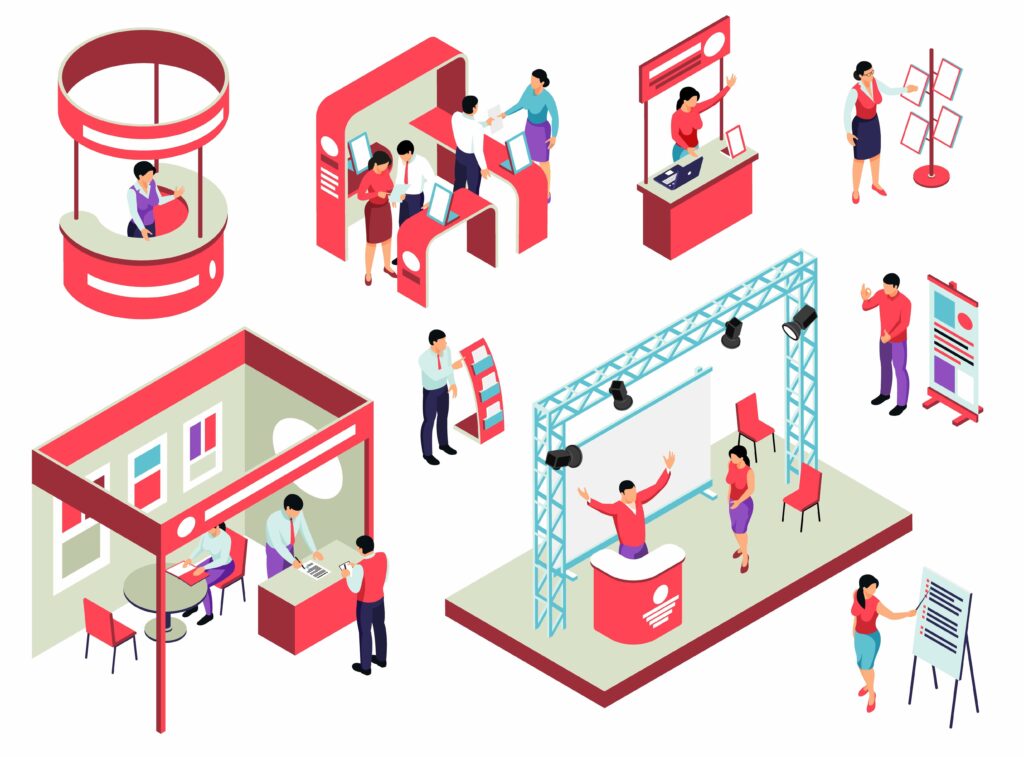
Experiential marketing is vital for cultivating brand loyalty by creating memorable interactions between the brand and its customers. Through immersive experiences such as events, pop-up shops, or interactive campaigns, brands can leave a lasting impression on consumers. These unique experiences not only differentiate the brand from competitors but also foster strong emotional connections with customers.
Memorable experiences have the power to enhance brand loyalty by creating positive associations and feelings towards the brand. When customers have enjoyable and meaningful interactions with a brand, they are more likely to develop a sense of loyalty and affinity towards it. Experiential marketing goes beyond traditional advertising by providing consumers with tangible experiences that resonate with them on a personal level.
Experiential marketing also plays a crucial role in driving customer engagement. By offering interactive and engaging experiences, brands can capture the attention of their target audience and encourage active participation. This hands-on approach not only strengthens the relationship between the brand and its customers but also fosters ongoing engagement and brand loyalty.
Brand Loyalty Indicators
Repeat Purchases
Repeat purchases are key indicators of brand loyalty, showcasing customers' trust and satisfaction with a brand. These consistent transactions not only demonstrate customer preference but also contribute significantly to a company's revenue stream. When customers repeatedly choose a particular brand over others, it solidifies their loyalty and establishes a long-term relationship.
For businesses, the impact of repeat purchases on revenue is substantial. Consistent patronage from loyal customers ensures a steady income flow, reducing the need for extensive marketing efforts to attract new clientele. By fostering loyalty through quality products and exceptional service, companies can rely on these repeat purchases to sustain their financial stability and growth.
Repeat purchases serve as a clear signal of brand loyalty as they reflect customers' commitment to a specific brand. The act of choosing the same product or service repeatedly indicates that consumers have developed a strong affinity towards the brand. This loyalty is built on positive experiences, trust in the brand's offerings, and overall satisfaction with their purchases.
Social Media Engagement
In today's digital age, social media plays a crucial role in cultivating brand loyalty by providing platforms for direct interaction between brands and consumers. Engaging with customers on social media allows brands to establish personal connections, respond to queries promptly, and showcase their values and personality. These interactions create a sense of community and belonging among customers, strengthening their loyalty towards the brand.
The importance of engaging with customers on social media lies in its ability to humanize brands and make them more relatable. By actively participating in conversations, sharing relevant content, and addressing customer concerns publicly, brands can build trust and credibility among their audience. This transparency fosters deeper connections and encourages long-term loyalty from customers.
ial media interactions serve as powerful tools for fostering brand loyalty by creating meaningful engagements that go beyond traditional advertising. By leveraging platforms like Facebook, Instagram, and Twitter to interact with customers in real-time, brands can showcase authenticity, responsiveness, and empathy. These interactions not only enhance customer satisfaction but also cultivate strong emotional ties that lead to sustained loyalty.
Customer Feedback
Customer feedback holds immense value in nurturing brand loyalty as it provides valuable insights into consumer preferences, expectations, and areas for improvement. By actively seeking feedback from customers through surveys, reviews, and direct communication channels, brands can gather actionable data that drives enhancements in their products or services. This continuous feedback loop enables companies to adapt to changing market trends and consumer demands effectively.
Feedback-driven improvements in brand offerings are essential for staying competitive in today's dynamic business landscape. By listening to customer suggestions, addressing concerns promptly, and implementing changes based on feedback received, brands can enhance their offerings to better meet customer needs. This proactive approach not only boosts customer satisfaction but also fosters long-term loyalty by demonstrating a commitment to continuous improvement.
Customer feedback plays a significant role in shaping brand perception among consumers. Positive feedback highlights strengths that differentiate the brand from competitors while constructive criticism offers opportunities for growth and innovation. By actively engaging with customer feedback and incorporating suggestions into their strategies, brands can build a positive reputation that resonates with loyal customers.
Future of Brand Loyalty
Trends and Predictions
Brand loyalty is evolving rapidly, with consumers becoming more discerning in their choices. Companies are leveraging data analytics to personalize customer experiences, enhancing brand loyalty. Emerging trends show a shift towards sustainability and ethical practices, influencing brand loyalty decisions.
In the future, brand loyalty strategies will focus on engagement through social media platforms and personalized marketing campaigns. Augmented reality and virtual reality technologies are predicted to revolutionize how brands interact with customers, creating immersive experiences that foster lasting connections.
The integration of artificial intelligence and machine learning will play a crucial role in predicting consumer behavior, allowing brands to tailor their offerings effectively. Voice search technology is also expected to impact brand loyalty by providing seamless and convenient interactions for customers.
Adapting to Changes
Adapting to changes is paramount for brands seeking to maintain strong customer relationships and foster brand loyalty. Companies must stay agile in responding to shifting consumer preferences and market dynamics to remain competitive.
Flexibility in brand loyalty strategies is essential to meet the evolving needs of consumers. By embracing innovation and adopting new technologies, brands can stay ahead of the curve and offer unique value propositions that resonate with their target audience.
Ensuring long-term brand success requires continuous adaptation and refinement of brand loyalty initiatives. Brands that proactively listen to customer feedback, analyze market trends, and adjust their strategies accordingly are more likely to build enduring relationships with their customers.
How MarketersMEDIA Can Help Boost Your Brand's Reputation

In the competitive world of marketing, building and maintaining brand loyalty is crucial for long-term success. One effective way to enhance brand loyalty is through strategic media coverage. This is where MarketersMEDIA comes into play.
MarketersMEDIA is a leading press release distribution service that can help your brand gain visibility and credibility in the market. By distributing your press releases through MarketersMEDIA, you can reach a wider audience and attract potential customers who are interested in your products or services.
Moreover, MarketersMEDIA can help you establish your brand as an authority in your industry. With their extensive network of media contacts, your press releases can be picked up by top-tier publications, increasing your brand's credibility and reputation.
If you're looking to boost brand loyalty and enhance your brand's reputation, consider leveraging the power of MarketersMEDIA. Their press release distribution services can help you reach a larger audience, establish credibility, and ultimately build a loyal customer base for your brand.
Statistics You Need to Know
When it comes to brand loyalty, it's all about that special bond between customers and their favorite brands. Did you know that a whopping 65% of consumers out there are more likely to stick with a brand they love, even if other brands try to lure them in with fancy deals or discounts?This means that when you win over a customer's heart, they'll keep coming back for more, no matter what the competition throws their way.
Research shows that those loyal customers who just can't get enough of your brand are actually worth up to 10 times the value of their very first purchase. This goes to show just how crucial it is to not only attract new customers but also to keep them coming back for more. Building strong brand loyalty isn't just about making a quick sale; it's about fostering long-lasting relationships that pay off big time in the end.
By focusing on nurturing that special connection with your customers, you're not only securing their loyalty but also setting yourself up for success in the long run. Remember, happy customers who feel connected to your brand are more likely to become your biggest advocates, spreading the word far and wide about how awesome your products or services are. And in today's competitive market, having loyal customers who have your back can truly make all the difference.
Closing Thoughts
You've delved into the realm of brand loyalty, understanding its nuances, strategies, and indicators. By grasping the significance for product businesses and exploring future trends, you're equipped to enhance your brand's loyalty effectively. Remember, building brand loyalty is an ongoing journey that requires dedication and adaptability.
As you move forward, keep identifying tailored strategies that resonate with your audience and align with your brand values. Monitor key loyalty indicators closely and stay attuned to evolving consumer preferences. Embrace the dynamic nature of brand loyalty, continuously refining your approach to foster lasting connections with your customers. Your commitment to cultivating brand loyalty will not only drive repeat business but also establish a loyal customer base that advocates for your brand organically.
Frequently Asked Questions
What is brand loyalty?
Brand loyalty refers to consumers' commitment and preference towards a specific brand over others in the market. It involves repeat purchases, positive word-of-mouth, and emotional connection with the brand.
How can businesses enhance brand loyalty?
Businesses can enhance brand loyalty by providing exceptional customer service, creating engaging marketing campaigns, offering loyalty programs, soliciting feedback for continuous improvement, and maintaining consistent quality in products/services.
Why is brand loyalty important for product businesses?
Brand loyalty is crucial for product businesses as it leads to repeat purchases, higher customer retention rates, increased customer lifetime value, positive word-of-mouth referrals, and insulation against competitive pressures in the market.
What are some key indicators of brand loyalty?
Key indicators of brand loyalty include high customer retention rates, frequent purchases from existing customers, positive online reviews and ratings, active participation in loyalty programs or community events, and willingness to pay premium prices for the brand's products/services.
What does the future hold for brand loyalty?
The future of brand loyalty lies in personalized experiences through data-driven strategies, influencer partnerships for authentic endorsements, sustainability initiatives to resonate with conscious consumers, seamless omnichannel interactions, and leveraging emerging technologies like AI and AR/VR to engage customers effectively.
Free Press Release Template
Tell us where to send your PDF:







